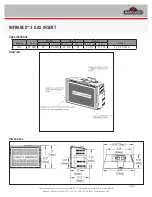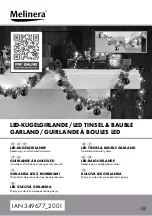
39 SMART-VS
CHAPTER 9
TROUBLESHOOTING
TROUBLESHOOTING GUIDE
PROBLEM
SUGGESTION
Overrun
Overrun occurrences are mostly due to a noisy trigger signal and/or a
too fast sequence of trigger events (e.g. more than two events every
50 ms).
Choose a proper Debounce filter time and/or adjust the line speed to
have 20 pieces per second.
The Trigger LED does not light up when
the object passes in front of the sensor
• In case of PNP signal, check that one of the two trigger inputs (I1A or
I1B) is connected to the signal coming from the sensor (or PLC) and
the other input is connected to 0Vdc.
• In case of NPN signal, check that one of the two trigger inputs (I1A or
I1B) is connected to the signal coming from the sensor (or PLC) and
the other input is connected to +Vdc.
• Check that the trigger sensor switches regularly when the object
passes through.
• Check that the Trigger Debounce is not set too high.
The Remote input signal does not start
the Teaching procedure
• In case of PNP signal, check that one of the two Remote inputs (I2A
or I2B) is connected to the signal coming from the button (or PLC)
and the other input is connected to 0Vdc.
• In case of NPN signal, check that one of the two Remote inputs (I2A
or I2B) is connected to the signal coming from the button (or PLC)
and the other input is connected to +Vdc.
• Check the correct operation of the button using a multimeter.
• Check that the Button Debounce is not set too high.
The PLC does not receive GOOD or NO
GOOD signals from the Smart-VS sensor
• Check that the GOOD object and NO GOOD object LEDs light up cor
-
rectly.
• If the PLC requires a PNP signal, check that the Smart-VS outputs
are set as Push-Pull or PNP.
• If the PLC requires a NPN signal, check that the Smart-VS outputs
are set as Push-Pull or NPN.
The Power On LED is off
• Check that Pin 1 (brown wire) is connected to +Vdc and Pin 2 (blue
wire) is connected to 0Vdc.
• Use a multimeter to check that the power supply voltage is 10 to 30
Vdc (see "
Technical Features" on page 41
).















































